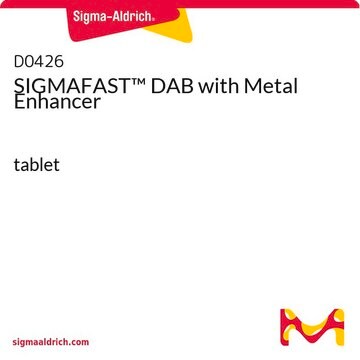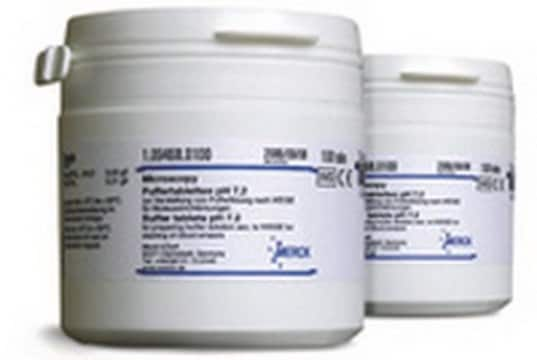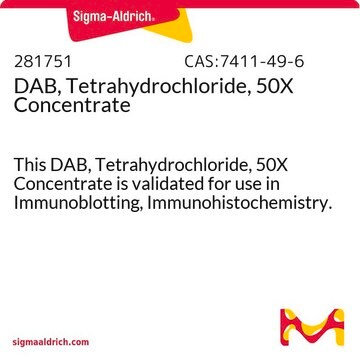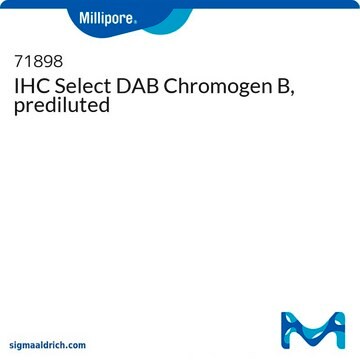D7304
3,3′-Diaminobenzidine (DAB) Liquid Substrate System tetrahydrochloride
Synonym(s):
Chromogenic substrate, DAB substrate solution
About This Item
Recommended Products
form
liquid
shipped in
wet ice
storage temp.
2-8°C
General description
Application
- in the immunoblot assay carried out to identify the changes in heat shock proteins (Hsps) expressed in the liver
- for visualization of sections after immunostaining
- in immunohistochemistry of mice knee joint sections
- in the immunolabeling of kisspeptin neurons in the preoptic area of camel
Caution
Quantity
Disclaimer
Kit Components Only
- 10X DAB Liquid Chromogen 25 mL
- ready-to-use buffer/peroxide solution 250 mL
Signal Word
Danger
Hazard Statements
Precautionary Statements
Hazard Classifications
Acute Tox. 3 Dermal - Acute Tox. 3 Inhalation - Acute Tox. 3 Oral - Carc. 1B - Flam. Liq. 2 - STOT SE 1
Target Organs
Eyes,Central nervous system
Storage Class Code
3 - Flammable liquids
WGK
WGK 3
Certificates of Analysis (COA)
Search for Certificates of Analysis (COA) by entering the products Lot/Batch Number. Lot and Batch Numbers can be found on a product’s label following the words ‘Lot’ or ‘Batch’.
Already Own This Product?
Find documentation for the products that you have recently purchased in the Document Library.
Customers Also Viewed
Articles
NBT-BCIP substrate system aids in western blotting and immunohistological staining, producing a blue-purple insoluble end product.
Our team of scientists has experience in all areas of research including Life Science, Material Science, Chemical Synthesis, Chromatography, Analytical and many others.
Contact Technical Service










